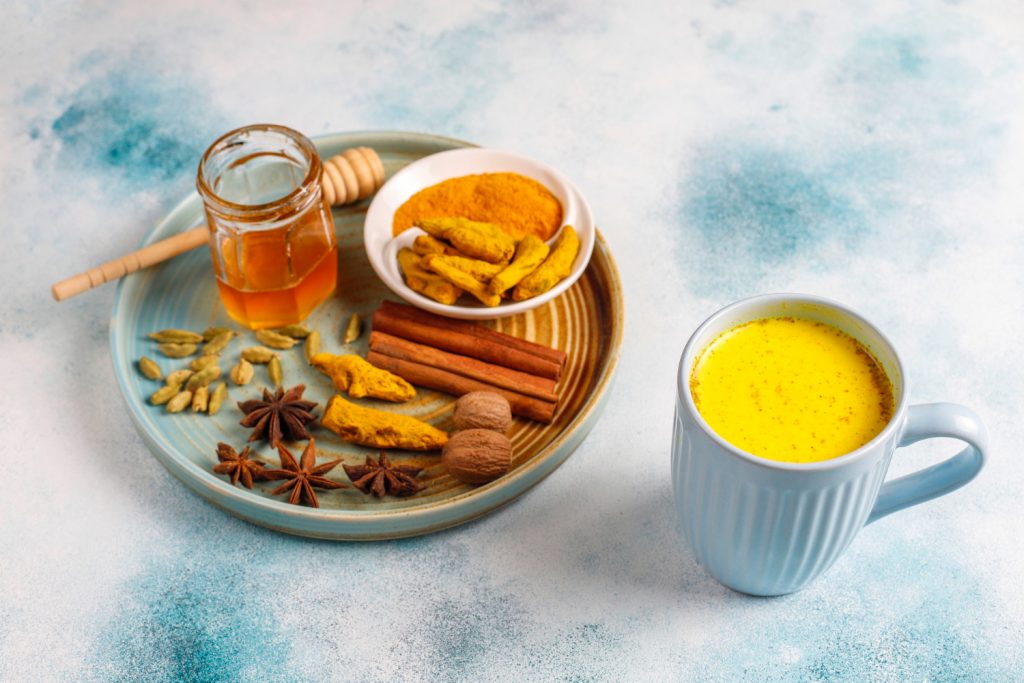How does turmeric with ginger affect the human heart?
It turns out that it's important to combine them to improve heart health.
We all want to have a healthy heart and live a long life. And for this you do not need to take special medications. Some natural ingredients will improve your condition. Don't believe it? Scientists have long been trying to find out how turmeric and ginger affect the human heart. And recently they came to interesting conclusions.
MigNews will share them with you so that you can benefit your vital organ as soon as possible.
Turmeric and ginger: are they really that beneficial?
Turmeric and ginger have been adding flavor and health benefits to dishes for centuries. Turmeric has a bold, earthy flavor with a hint of bitterness. Ginger adds a spicy flavor that can warm up any dish. But in addition to adding a touch of spice to your favorite recipes, these two roots contain compounds that may support your overall health. A cup of warm milk with turmeric can help reduce inflammation. And a little ginger in tea can help with nausea or other digestive issues.
Both turmeric and ginger are rich in antioxidants and anti-inflammatory properties, which can help support heart health. But don't expect them to work wonders on their own. “Both turmeric and ginger have anti-inflammatory properties that can support heart health. However, they are best viewed as a supplement to an overall healthy lifestyle, not a stand-alone remedy,” says registered dietitian Kat Benson.
According to Benson, a healthy lifestyle includes consistent eating habits. “Heart-healthy factors include consuming fiber, healthy fats, and a plant-based diet. These provide well-documented benefits, including phytonutrients with anti-inflammatory effects. Some of these are also found in turmeric and ginger.”
How turmeric with ginger affects the human heart: benefits
 Mix milk, turmeric, and ginger to make spicy “golden milk”, Source: freepik.com
Mix milk, turmeric, and ginger to make spicy “golden milk”, Source: freepik.com
Curcumin, found in turmeric, may help regulate blood pressure by supporting blood vessel function. Benson says research is mixed on how well curcumin helps reduce stiffness and improve flexibility in arteries. “While turmeric may play a role in supporting healthy cholesterol levels, it’s not as effective as consuming fiber or taking cholesterol-lowering medications,” she says.
Ginger improves heart health in a different way. “Ginger contains compounds like gingerol that may have mild anticoagulant (blood-thinning) properties, potentially reducing the risk of blood clots and promoting smoother blood flow,” says Benson. Cholesterol-lowering medications are effective at lowering LDL cholesterol and triglycerides. But some studies have shown that adding ginger to your diet can also lower cholesterol.
Taking ginger and turmeric together (like in golden milk) doesn't necessarily increase their heart-healthy benefits. But Benson says ginger can help your body better absorb turmeric. “Together, they can promote healthy circulation, as turmeric supports blood vessel function. And ginger's mild anticoagulant properties can help blood flow more smoothly,” she says. “However, their combined benefits are primarily due to synergistic absorption, not a significant increase in heart health effects.”
Other beneficial properties of ginger and turmeric
Ginger and turmeric can not only add flavor to your food and protect your heart. They can also help balance hormones, fight inflammation, and protect cells, according to a 2011 review published in the American Journal of Chinese Medicine. These powerful roots can lower levels of certain hormones, such as thyroid hormone and leptin, or affect the function of hormone receptors. They also help block inflammatory proteins that contribute to the development of chronic diseases. In addition, ginger and turmeric may reduce oxidative stress and even slow the growth of cancer cells.
Looking for a natural alternative to NSAIDs for osteoarthritis? Turmeric and ginger may be just as effective. In a 2020 study published in the journal Phytotherapy Research, people with knee osteoarthritis took either naproxen (Aleve) or a combination of turmeric, ginger, and black pepper. After four weeks, both groups saw significant reductions in inflammation, though neither drug was superior to the other.
Some people worry that mouthwash can raise blood pressure. But is this true? Read here.

